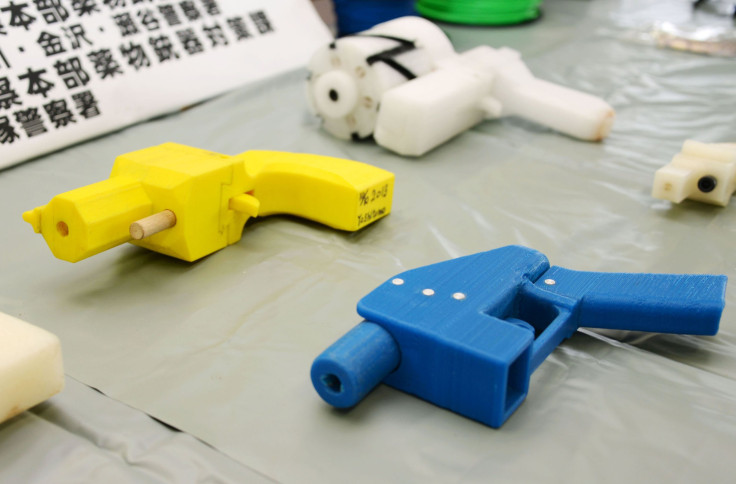US States Make Last-Minute Legal Bid To Halt 3-D Online Guns

Several U.S. states said on Monday that they would jointly sue the Trump administration in a last-ditch effort to block the public from being able to download blueprints for 3-D printable guns.
The blueprints are set to go online on Wednesday, following a June settlement between the U.S. government and Texas-based Defense Distributed that allows the company to legally publish the designs.
The states will ask a federal judge to issue a restraining order and an injunction to block the publication, Washington State Attorney General Bob Ferguson said at a news conference in Seattle.
Along with Washington state, New York, New Jersey, Pennsylvania, Connecticut, Oregon, Maryland, and the District of Columbia are working on finalizing the lawsuit and plan on filing it later on Monday, Ferguson said.
The states behind the lawsuit argue that publishing blueprints would allow criminals easy access to weapons. Gun rights advocates say fears about 3-D printed guns are largely overblown, based on current technology.
A series of mass shootings in the United States has brought a long-simmering debate over the country's gun laws to the fore, with Democrat lawmakers increasingly calling for greater restrictions.
Defense Distributed had challenged an earlier government ban as a violation of its First and Second Amendment rights to free speech and to bear arms. It says on its website that it plans to release the plans by Aug. 1.
In a statement on Monday, the State Department said that the decision to settle the case was made in the interests of the security and foreign policy of the United States and in consultation with the Justice Department.
The Justice Department declined to comment.
But the administration of U.S. President Donald Trump had failed to adequately explain why it settled the case and allowed the publication of the blueprints, Ferguson said.
"Our Congress has carefully crafted laws to protect us and, in one moment, without any consultation with experts, the administration undoes it," he said.
The U.S. State Department had previously banned the blueprints as a national security risk and a violation of arms trafficking regulations. As recently as April, the government in court filings argued downloadable guns would allow extremist groups and criminals abroad unfettered access to arms.
The government failed to study the impact of its decision and did not consult with other agencies before settling, making its actions "arbitrary and capricious," in violation of federal law, Ferguson said. He said the settlement also violated states' rights to regulate firearms.
Gun rights groups have been largely dismissive of concerns over 3-D printable guns, pointing out that the technology is expensive and the guns unreliable. They also say such guns are still subject to federal laws, such as a requirement that all guns contain metal parts, and state laws that require serial numbers.
Defense Distributed is a Texas-based company founded by self-declared anarchist and former law school student Cody Wilson in 2012 as an online, open-source organization developing digital firearm files.
Its files include 3-D printable blueprints for a plastic AR-15 semi-automatic assault rifle, a version of a weapon that has been used in many U.S. mass shootings, as well as other firearms.
Defense Distributed did not reply to a request for comment on Monday. A lawyer for the company during a court hearing on Friday said legal requests to halt the publication of the blueprints were an attempt to litigate a political dispute in court.
Gun control groups on Friday failed to convince a federal judge to intervene to block the publication.
Pennsylvania on Sunday said it had reached an agreement with Defense Distributed to make its firearms plans inaccessible to users in the state. But Pennsylvania is still planning to sue the Trump administration over the issue.
© Copyright Thomson Reuters {{Year}}. All rights reserved.





















